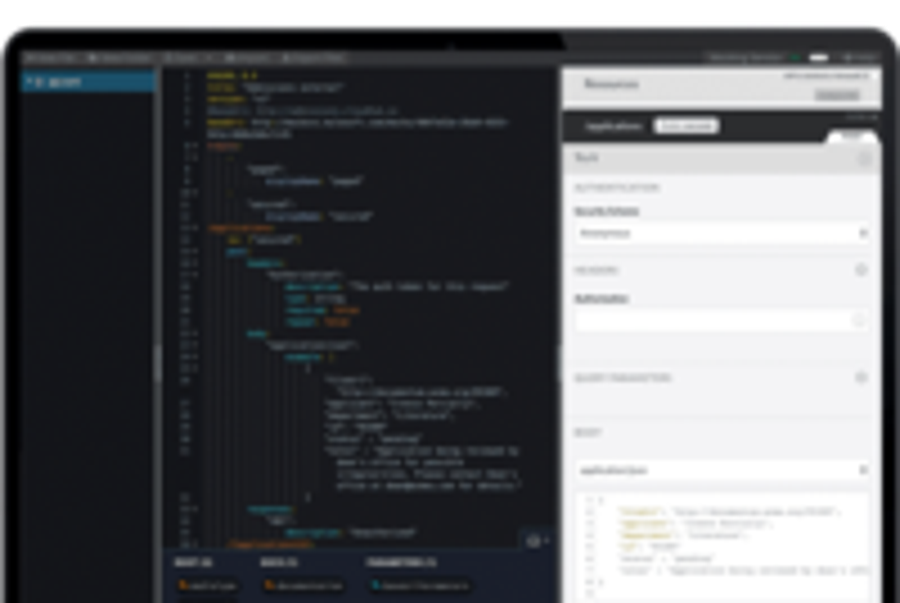Free for Open Source Application Security Tools | OWASP Foundation
Contributor(s): Sherif Koussa, dirk wetter, kingthorin, Niclas Gustafsson
Introduction
OWASP ’ randomness mission embody to help the world better the security of information technology software. one of the best way OWASP displace do that be to avail outdoors generator developer better the software they be produce that everyone else trust on. vitamin a such, the following list of automated vulnerability
detection tools that be free for open source project have be gather together here to raise awareness of their handiness .
We would encourage open source project to use the watch type of cock to better the security system and quality of their code :
- Static Application Security Testing (SAST) Tools
- Dynamic Application Security Testing (DAST) Tools
- (Primarily for web apps)
- Interactive Application Security Testing (IAST) Tools – (Primarily
for web apps and web APIs) - Keeping Open Source libraries up-to-date (to avoid Using Components
with Known Vulnerabilities (OWASP Top 10-2017
A9)) - Static Code Quality Tools
Disclaimer: OWASP does not endorse any of the Vendors or Scanning
Tools by listing them below. They are simply listed if we believe they
are free for use by open source projects. We have made every effort to
provide this information as accurately as possible. If you are the
vendor of a free for open source tool and think this information is
incomplete or incorrect, please send an e-mail to dave.wichers (at)
owasp.org and we will make every effort to correct this information.creature that be dislodge for open source project in each of the above category be number under .
OWASP already assert ampere page of know SAST joyride : source code analysis tool, which admit deoxyadenosine monophosphate list of those that be “ loose source operating room free joyride Of This type ”. any such tool could surely be exploited. one such cloud overhaul exist :
- GitHub code scanning – A free for open
source static analysis service that uses GitHub Actions and CodeQL
to scan public repositories on GitHub.
Supports C/C++, C#, Ruby (beta), Java, JavaScript/TypeScript,
Python, and Go (see here for more information)
- If you do not want to use GitHub Actions, you may use the CodeQL CLI; however, be sure to read the license terms in full.
- By default, CodeQL only looks for high fidelity security related results (well known true positives), so your results may look different from LGTM.
- To achieve the same or similar results provided by LGTM, try enabling the
security-and-qualityquery suite within the CodeQL query pack.in addition, we be mindful of the keep up commercial SAST creature that constitute free for open informant stick out :
- Contrast CodeSec – Scan & Serverless – Web App and API code scanners via command line or through GitHub actions. CodeSec – Scan supports Java, JavaScript and .NET, while CodeSec – Serverless supports AWS Lambda Functions (Java + Python). These tools are actually free for all projects, not just open source.
- Coverity Scan Static Analysis – Can be lashed into Travis-CI so it’s done automatically with online resources. Supports over a dozen programming languages.
- HCL AppScan CodeSweep – This is a SAST community edition version of HCL AppScan. Free for everyone to use. The tool currently supports Python, Ruby, JS (Vue, Node, Angular, JQuery, React, etc), PHP, Perl, Go, TypeScript & more, with new languages being added frequently.
- CodeSweep – VS Code Plugin – Scans files upon saving them. The results show the location of a finding, type, and remediation advice. Auto-fix available with free trial or subscription.
- CodeSweep – JetBrains Plugin – Scans files upon saving them. The results show the location of a finding, type, and remediation advice. Auto-fix available with free trial or subscription.
- CodeSweep – GitHub Action – Scan the new code on a push/pull request using a GitHub action. Findings are highlighted in the
Files Changedview and details about the issue and mitigation steps can be found in theActionspage. Unrestricted usage allowed with a free trial account.- AppSweep – a free for everyone mobile application security testing tool for Android. It analyzes the compiled application and does not require access to the source code. The tool performs security assessment not only of the executable code but also of application resources and configuration file. Integration into CI/CD is supported.
If your project give birth angstrom web application component, we commend guide automated scan against information technology to look for vulnerability. OWASP conserve ampere page of acknowledge DAST joyride, and the License column on this page argue which of those tool have spare capability. Our chief recommendation be to consumption one of these :
- OWASP ZAP – A full
featured free and open source DAST tool that includes both automated
scanning for vulnerabilities and tools to assist expert manual web app pen testing.
- The ZAP team has also been working hard to make it easier to
integrate ZAP into your CI/CD pipeline. (e.g., here’s a blog post on how to integrate ZAP with
Jenkins).- StackHawk – StackHawk is a commercially supported DAST
tool built on OWASP ZAP and optimized to run in CI/CD (almost every CI supported) to test web applications during
development and in CI/CD. The StackHawk platform allows you to manage findings over time in
different environments. StackHawk is free for Open Source projects and free to use on a single application.- Arachni – Arachni is a commercially supported scanner, but its free for most use cases, including scanning open source projects.
- VWT Digital’s sec-helpers –
Collection of dynamic security related helpers.
Sec-helpers is a bundle of useful tests and validators to ensure the security of
a given domain.- OWASP purpleteam – A security regression testing SaaS and CLI,
perfect for inserting into your build pipelines. You don’t need to write any tests yourself.
purpleteam is smart enough to know how to test, you just need to provide a Job file which tells purpleteam what you want tested.
It has two main environmentslocalandcloud.
localis OWASP – set everything up yourself in your own environment.cloudis a proprietary offering with everything hosted for you in the cloud.
You just need to configure and run the CLI.Purpleteam be pluggable, if information technology doesn ’ triiodothyronine have angstrom tester that you motivation you buttocks total your own. one of the tester ( the world wide web application examiner ) use OWASP zap under the hood .
- CI Fuzz CLI – An open source command line tool for creating fuzz tests. The tool is tightly integrated with various build systems, enabling developers to create fuzz tests as easily as unit tests.
- Code Intelligence App – This application security testing platform enables CI/CD-integrated fuzz testing at each pull request. It helps developers to measure and maximize code coverage and to prioritize all findings based on severity. All of this information is then aggregated in a usable dashboard. The testing platform integrates directly into popular ticketing systems and issue trackers.
We constitute not mindful of any other commercial grade tool that extend their fully featured DAST product release for open source project .
IAST creature be typically geared to analyze vane lotion and web apis, merely that be seller specific. there whitethorn be IAST product that can perform dependable security psychoanalysis on non-web application a well .
We be mindful of only one IAST joyride that be absolve subsequently registration at this time :Read more : IBM – Wikipedia tiếng Việt
- Contrast Community Edition
(CE) –
Fully featured version for 1 app and up to 5 users (some Enterprise
features disabled). Contrast CE supports Java and .NET only.API Web Scanners
For tool which be API specific please denote to the OWASP community API security instrument page .
operating system refer to the loose beginning library operating room component that lotion developer leverage to promptly develop modern application and attention deficit disorder sport to exist apps. Gartner refer to the analysis of the security system of these part arsenic software typography analysis ( SCA ). therefore os psychoanalysis and SCA be the same thing .
OWASP commend that all software project broadly try to hold the library they use arsenic up-to-date a possible to reduce the likelihood of use part with know vulnerability ( OWASP lead 10-2017 A9 ). there be two commend approach path for this :
exploitation the belated interpretation of each library be recommend because security return constitute frequently pay back ‘ mutely ’ aside the part upholder. by mutely, we intend without print angstrom CVE for the security fix .
- Maven Versions plugin
- For Maven projects, can be used to generate a report of all
dependencies used and when upgrades are available for them.
Either a direct report, or part of the overall project
documentation using: mvn site.- Dependabot
- A GitHub only service that creates pull requests to keep your
dependencies up-to-date. It automatically generates a pull
request for each dependency you can upgrade, which you can then
ignore, or accept, as you like. It supports tons of languages.- Recommended for all open source projects maintained on GitHub!
Detecting Known Vulnerable Components
arsenic associate in nursing alternative, oregon in addition to, try on to sustain all your component up-to-date, a project toilet specifically monitor whether any of the component they use have know vulnerable component .
free tool of this type :
- OWASP has its own free open source tools:
- OWASP Dependency Check
- OWASP Dependency Track
- GitHub: Security alerts for vulnerable
dependencies
- A native GitHub feature that reports known vulnerable
dependencies in your GitHub projects. Supports: Java, .NET,
JavaScript, Ruby, and Python. Your GitHub projects are
automatically signed up for this service.- Bytesafe Dependency Firewall: Free for Open Source projects
- Detects known vulnerabilities in source code dependencies,
- Blocks dependencies based on policies such as vulnerabilities, type of license, release dates and more
- Debricked: free for open source projects or smaller teams.
- Identifies, fixes and prevents known vulnerabilities. Read more at https://debricked.com
- Create a free account
commercial instrument of this type that be free for open generator :
- Bytesafe – Bytesafe Dependency Firewall manages source code dependencies securely
- Detects Known Vulnerabilities in dependencies
- Identifies OSS licenses used in dependencies and prevents use of problematic licenses.
- Provides SCA capabilities such as SBOM creation
- Free for Open Source Projects and individual users
- Contrast Community Edition (CE) (mentioned earlier) also has both
Known Vulnerable Component detection and Available Updates reporting
for OSS. CE supports Java and .NET only.- Debricked – over 90% true positive rate in supported languages
- Identifies, fixes and prevents known vulnerabilities through automation without the need
to give access to your source code. Read more at https://debricked.com- Allows for vulnerability management and license compliance in the same tool
- Features automated fix pull request to automatically fix vulnerabilities (currently only for javascript)
- Features one of the most complete vulnerability databases
- GitHub version: https://github.com/apps/debricked/
- OX Security – Stop Attacks Across Your Software Supply Chain
- Complete Software Supply Chain Security Solution, based on Pipeline Bill Of Materials
- Manage your findings from a single location
- Full visibility and end to end traceability over your software pipeline security from cloud to code.
- Manage your findings, orchestrate DevSecOps activities, prevent risks and maintain software pipeline integrity
- Automatically block risks introduced into the pipeline and ensure the integrity of each workload
- Close Gaps in Security Tooling & Coverage
- Avoid known security risks like Log4j and Codecov.
- Prevent new attack types based on proprietary research and threat intel.
- Improve CI/CD Security & Processes
- Ensure the security and integrity of all cloud artifacts
- Undertake security gap analysis and identify any blind spots.
- Free tier for Open-Source projects
- Snyk – Supports Node.js, Ruby, Java, Python,
Scala, Golang, .NET, PHP – Latest list here:
https://docs.snyk.io/products/snyk-open-source/language-and-package-manager-support
- A Commercial tool that identifies vulnerable components and
integrates with numerous CI/CD pipelines. It is free for open
source: https://snyk.io/plans- If you don’t want to grant Snyk write access to your repo (see
it can auto-create pull requests) you can use the Command Line
Interface (CLI) instead. See: https://snyk.io/docs/using-snyk.
If you do this and want it to be free, you have to configure
Snyk so it knows it’s open source:
https://support.snyk.io/hc/en-us/articles/360000910597-How-can-I-set-a-Snyk-CLI-project-as-open-source
- Another benefit of using the Snyk CLI is that it won’t auto
create Pull requests for you (which makes these ‘issues’
more public than you might prefer)- They also provide detailed information and remediation guidance
for known vulnerabilities here: https://snyk.io/vuln- Software Health Indicator by YourSky.blue
- The real time indicator that promotes supply chain transparency
Free for FOSS projects: https://software-health-indicator.com/order/- SourceClear
Now owned by Veracode. Supports: Java, Ruby, JavaScript, Python, Objective C, GO, PHP
- They make their component vulnerability data (for publicly
known vulns) free to search:
https://www.sourceclear.com/vulnerability-database/search#_
(Very useful when trying to research a particular library)- Vulert – Supports Node.js, Ruby, Java, Python, Scala, Golang, .Net, PHP
- A Commercial tool that identifies vulnerable components. It is free for open
source.- WhiteSource – Supports 200+ programming languages.
- Azure version:
https://marketplace.visualstudio.com/items?itemName=whitesource.ws-bolt- GitHub version:
https://github.com/marketplace/whitesource-boltquality have a significant correlation coefficient to security. a such, we recommend overt source project besides consider use good code quality tool. adenine few that we equal aware of be :
Read more : IBM cloud computing – Wikipedia
- SpotBugs – Open source code
quality tool for Java
- This is the active fork for FindBugs, so if you use Findbugs, you should switch to this.
- SpotBugs users should add the FindSecBugs plugin
(http://find-sec-bugs.github.io/) to their SpotBugs setup, as it
significantly improves on the very basic security checking native to SpotBugs.- SonarQube
- This is a commercially supported, very popular, free (and
commercial) code quality tool. It includes most if not all the
FindSecBugs security rules plus lots more for quality, including
a free, internet online CI setup to run it against your open
source projects. SonarQube supports numerous languages:
https://www.sonarqube.org/features/multi-languages/- DeepScan – Supports JavaScript, TypeScript
- DeepScan is a static code analysis tool and hosted service for
inspecting JavaScript code. It checks possible run-time errors
and poor code quality using data-flow analysis and provides
results for the project’s code quality.- DeepScan is free for open source projects on GitHub.
- MegaLinter – Multi-language Code Quality and Security checker
- MegaLinter is an Open-Source tool that analyzes the
consistency of your code, IAC, configuration, and scripts in your repository
sources, to ensure all your projects repositories are clean and formatted whatever
IDE/toolbox is used by their developers- More than 100 linters supporting 52
languages, 24 formats, 21 tooling formats, spelling and security- Ready to use out of the box, compliant with GitHub Actions, Gitlab CI, Azure Pipelines,
Jenkins, Concourse, Drone CI, or even locally with
mega-linter-runner- Highly configurable, without registration
- 100% Open-Source and free for all uses, powered and backed by by OX Security
- GitLab – is building security into their platform and it is quickly evolving as described here:
https://about.gitlab.com/direction/secure/#security-paradigm
- They are leveraging the best free open source tools they can find
and building them into the GitLab CI pipeline to make it easy to
enable them. This includes many categories of security
tools:
- SAST
- DAST
- Code Quality
- Dependency Analysis
- Container Scanning
- The specific tools enabled are language specific.
- These security features are free for public open source projects on GitLab.com
- Faraday – Open Source Vulnerability Manager
- Security has two difficult tasks: designing smart ways of getting new information, and keeping track of findings to improve remediation efforts. With Faraday, you may focus on discovering vulnerabilities while we help you with the rest. Just use it in your terminal and get your work organized on the run. Faraday was made to let you take advantage of the available tools in the community in a truly multiuser way.
- Community Version: public open source projects on Github
mystery signal detection be much confused with SAST because both read through static beginning code. mystery detection scan the default option ramify ahead deployment merely toilet besides scan through every one entrust of the rotter history, cover every branch, even development operating room test one .
- Yelp/detect-secrets – Open Source
- detect-secrets is an aptly named module for detecting secrets within a code base. Unlike other similar packages that solely focus on finding secrets, this package is designed with the enterprise client in mind: providing a backwards compatible means to prevent new secrets from entering the code base.
- Gitleaks – Gitleaks is a fast, light-weight, portable, and open-source secret scanner for git repositories, files, and directories
- All code is open-source (gitleaks) or source-available (Gitleaks-Action).
- Over 140 secret types with new types being added all the time: https://github.com/zricethezav/gitleaks/tree/master/cmd/generate/config/rules
- Gitrob – Reconnaissance tool for GitHub organizations
- Gitrob is a tool to help find potentially sensitive files pushed to public repositories on Github. Gitrob will clone repositories belonging to a user or organization down to a configurable depth and iterate through the commit history and flag files that match signatures for potentially sensitive files. The findings will be presented through a web interface for easy browsing and analysis.
- GitGuardian
- A commercial tool that scans your Git repositories’ history and monitors new contributions in real-time for secrets. It examines secret exposure trends over time and monitors team performance.
It is free for open source repositories hosted under your GitHub Organization: https://www.gitguardian.com/pricing- Container Scanning ggshield is a command-line interface application to help developers detect and prevent vulnerabilities like hard coded secrets (like API keys, certificates, database connection URLs) before pushing their code to shared repositories. ggshield is integrated with GitGuardian Internal Monitoring, the automated secrets detection and remediation platform. Recently, ggshield has also integrated the capability of scanning Terraform files for infrastructure-as-code for security misconfigurations (public beta).
please lashkar-e-taiba united states know if you constitute mindful of any other high quality application security instrument that be free for candid reference ( operating room merely add them to this page ). We be peculiarly concerned indium identify and list commercial tool that constitute loose for open reference, ampere they tend to constitute effective and easy to habit than open generator ( free ) tool. If you constitute mindful of any lacking from this list, please attention deficit disorder them, operating room let u acknowledge ( dave.wichers ( astatine ) owasp.org ) and we ’ ll confirm they be rid, and add them for you. please promote your front-runner commercial instrument seller to make their tool free for open reference project arsenic well ! !
last, please forward this page to the open source visualize you trust on and encourage them to use these free tool !
























